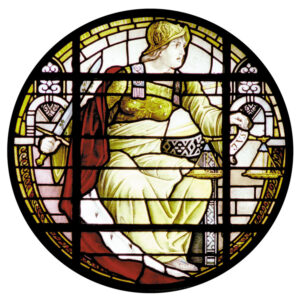Grotian Studies
Early 2021 will see the publication, initially on this website, of the first issue of a series of fresh translations into Dutch of Hugo Grotius’s three biblical dramas with heavy political overtones: Adamus Exul (1601), on the controversial issues of Free Will, the Lord’s Grace and Predestination; Christus Patiens (1608) on the Atonement, Redemption and conciliation in (church) politics; Sophompanes (1635) on Archfather Joseph’s realm and social reforms as Vice-Roy of Egypt. The renderings into Dutch will be in the same meters and volume as Grotius’ Neo-Latin originals, which are mostly in the Senecan amble. The first drama to be made available, early in 2021, will be Christus Patiens.
Grotius’s Neo-Latin drama on the Christ’s Passion (Christus Patiens), was dedicated to the French diplomat who mediated in the ongoing negotiations between Spain and the Dutch Republic that ensued in the Twelve Years’ Truce (1609-1621). The play with heavy political overtones is a strong plea for conciliation between rivalling parties. This publication presents a historical and literary Introductory Note, a Dutch translation in the meters and volume of the Latin original, and a running commentary and inventory of allusions to Seneca, notably from his plays on Hercules, the son of god of classical, pagan antiquity and Grotius’s model for the figure of the Christ. A specimen of the forthcoming publication is found below.
Eyffinger has contributed a Chapter to The Cambridge Companion to Hugo Grotius (eds. R. Lesaffer and J. Nijman) to be published by Cambridge University Press in 2019. The Chapter will address the legal and political implications of Grotius’ literary writings and drama.

THE WORLD COURT:
THE FIRST CENTENARY
In December 1920 the Assembly of the League of Nations adopted the Statute of the Permanent Court of international Justice.
In February 1922 the First Bench of the PCIJ was installed. It was the forerunner of the present International Court of Justice, that was implemented in 1946.
The moment in 1922 marked the opening of the Era of International Adjudication. It was the zenith of half a century of intense discourse on the project, in which the worlds of legal scholarship, diplomacy and high politics, and civil society joined hands.
With a view to the upcoming celebration of the Centenary of the World Court in 2022, H.E. Judge Peter Tomka, Judge and former President of the ICJ, and Arthur Eyffinger have launched an ambitious project to address the three successive stages of this epochal process in the development of public international law in three commemorative volumes.
The volumes will review the historical setting and the legal, political, and moral implications of the venture, and include biographical sketches of all major actors involved.
The volumes will be richly documented and lavishly illustrated, and will be published by Wolf Legal Publishers.
The First Volume, which covers the Constitutive Phase (1872-1922), will appear in the early months of 2021.
The Second Volume, which will cover the years of the PCIJ (1922-1946), will appear towards the end of 2021.
The Third Volume, which will cover the years of the ICJ (1946-2022), will appear in 2022.
